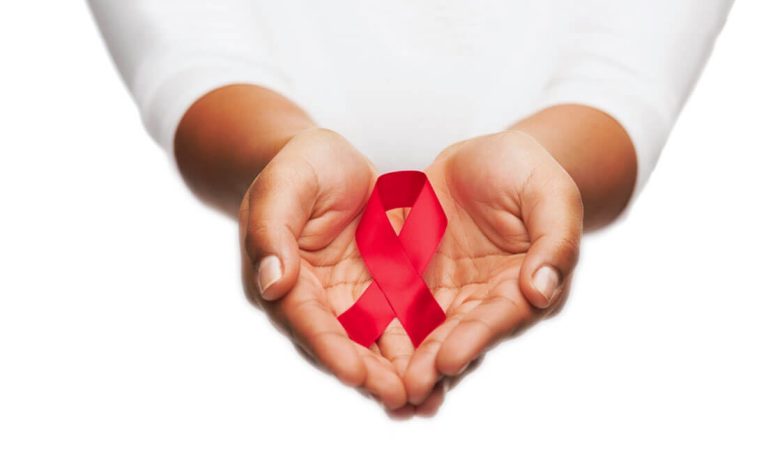
HIV, the human immunodeficiency virus, has been more than just a medical condition but also a profoundly sore test of our collective humanity. Since outbreak in the early 1980s, HIV/AIDS has put our empathy, understanding, and willingness to accept fellow humans who are infected and in dire need of acceptance, into scrutiny. Unending issues of stigma and discrimination across societies, creeds and races worldwide have betrayed our understanding of the shared humanity.
Undoubtedly, HIV in its early days presented an unprecedented challenge with its rapid spread across continents and infecting millions of people. The World Health Organization (WHO)’s data reveals that since the beginning of the epidemic, 85.6 million people have been infected with the HIV virus and about 40.4 million people have died of HIV.
The early years were marked by fear, misunderstanding, and a desperate search for a cure. The search lingered until the discovery and development of Antiretroviral Therapy (ART), which became pivotal in changing the course of the HIV/AIDS epidemic. While AZT also known as zidovudine or Retrovir, was the first antiretroviral drug, the introduction of protease inhibitors and the subsequent development of the Highly Active Antiretroviral Therapy (HAART) in the mid-1990s were crucial milestones, which significantly improved the life expectancy and quality of life for people living with HIV (PLWHA).
Despite the significant medical breakthrough, stigma and discrimination seem far more entrenched and harder to overcome. Stigma remains a dual burden on infected persons who combine management of a chronic health condition with an enduring social ostracism. Discrimination against PLWHA takes the form of social exclusion and denial of healthcare, employment, and housing.
In Nigeria, HIV stigma and discrimination are closely linked and mutually reinforcing. Stigma arises from misconceptions about HIV transmission, moral judgments, and fear, leading to discriminatory behaviors such as social ostracism, denial of employment, and inadequate healthcare access for those living with HIV. Discrimination exacerbates stigma, making individuals unwilling to disclose their status or seek treatment, thus perpetuating the cycle of ignorance and prejudice.
Where are the laws?
HIV stigma has defied international and national laws enacted to eliminate or at best reduce it to the barest minimum. The Universal Declaration of Human Rights (UDHR), states that everyone is entitled to all the rights and freedoms set forth in the Declaration, without distinction of any kind, while article 26 of the International Covenant on Civil and Political Rights (ICCPR) categorically states that all persons are equal before the law and are entitled without any discrimination to the equal protection of the law.
The UNAIDS International Guidelines on HIV/AIDS and Human Rights, published in 1998 and updated in 2006, apart from emphasizing the protection of human rights and the elimination of stigma and discrimination, equally recommend repealing of punitive laws, policies, and practices, and the implementation of laws and policies that promote equality and non-discrimination.
The Global Commission on HIV and the Law’s 2012 report, entitled “HIV and the Law: Risks, Rights & Health,” calls for legal reforms to reduce HIV-related stigma and discrimination and improve access to justice for PLHIV.
There are local laws and policies in Nigeria combating HIV-related stigma and discrimination. The HIV and AIDS (Anti-Discrimination) Act 2014 eliminates all forms of discrimination against people living with HIV and AIDS (PLHIV). Its section 3(1) states that no person, community, institution, or organization, whether public or private, shall discriminate, directly or indirectly, against any person based on their HIV status or perceived HIV status in employment, accommodation, education, healthcare services, and other areas of public life.
Its Section 7 (1) warns against requiring any employer, employee, or applicant for employment to undergo HIV testing or disclose their HIV status as a condition for employment or continued employment while section 7(2) prohibits the termination of employment based on an employee’s HIV status.
Section 9(1) gives every person living with HIV the right to privacy regarding their HIV status stating that no person shall disclose the HIV status of another without their consent, except where required by law. In its section 12, the Act emphasizes the importance of providing accurate information and education to the public about HIV and AIDS to reduce stigma and discrimination.
The 2014 Act goes ahead to prescribe penalties for stigma and discrimination. Section 14(1) specifically prescribes a fine of not less than N500,000 (Five Hundred Thousand Naira) for individuals, or N2,000,000 (Two Million Naira) for organizations for discriminating against a person on the grounds of their actual or perceived HIV status. In section 14(2), the court in addition to the fine, may order the convicted person or organization to pay compensation to the victim as deemed appropriate.
According to section 9(3), any person who breaches the confidentiality of another person’s HIV status without consent, except as required by law, is liable on conviction to the penalties specified under Section 14 above same as any person who subjects a person living with HIV to harassment or abuse is liable to the penalties specified under Section 14 of the Act.
No longer a Death Sentence
Even in Nigeria where the response has largely been donor driven, there have been steady progress as Nigeria has significantly expanded access to HIV testing and treatment services. Millions of Nigerians have been tested with substantial increase in the number of people receiving antiretroviral therapy (ART). The US President’s Emergency Plan for AIDS Relief (PEPFAR) with it whooping disbursement of over $7.8 billion has provided over 1.9 million Nigerians with access to antiretroviral treatment (ART). Consequently, Nigeria is on the cusp of HIV epidemic control and is approaching the global “95-95-95” goals.
The Nigerian government has equally implemented the National HIV/AIDS Strategic Framework (2017-2021), towards achieving the UNAIDS 95-95-95 targets aimed to see 95% of people living with HIV knowing their status, 95% of those diagnosed receiving sustained ART, and 95% of those on treatment achieving viral suppression.
There has also been a notable decline in new HIV infections, while the country has equally made strides in preventing mother-to-child transmission of HIV, with increased access to prenatal care and ART for pregnant women, which significantly reduces the risk of transmitting HIV to their babies. Various community-based initiatives and partnerships with non-governmental organizations (NGOs) have been crucial in raising awareness, reducing stigma, and encouraging voluntary testing and treatment.
Time to embrace humanity
We must view the statistics about HIV as humans who deserve a good life like any of us. We must empathically listen to their stories to understand their struggles, and to advocate for their rights. We must seek adequate education about the virus to be able to dispel myths and replace our fears with facts. We must look beyond stereotypes to set the stage for open communication with fellow Nigerians living with HIV.
We must generally adopt a humanitarian approach to HIV response while disallowing fear and prejudice to dictate our actions. As we sustain the progress of our national HIV response, prejudices which fuel stigma and discrimination must be sustainably challenged. We must amend our laws and policies as well as work towards shifting cultural attitudes. By addressing the stigma and discrimination, we not only improve the lives of those affected by the virus but also reaffirm our commitment to human dignity and equality.
The 2023 UNAIDS Global AIDS Update shows interesting improvement in HIV response across the world with new infections reducing by 49% between 2010 and 2022, while treatment coverage increased from 36% to 82%. In 2022, 71% of persons living with HIV (PLHIV) got virally suppressed. These encouraging statistics should discourage stigma and discrimination.
On this special day marking Zero HIV Stigma and in accordance with the theme which is “Beyond Labels : Redefining HIV Narratives”, we must all resolve to stop the discriminatory and undignifying labelling of those living with HIV. We must see humanity in every HIV infected person. We must embrace and show them love. Stop the stigma. Stop the discrimination. Embrace humanity.



